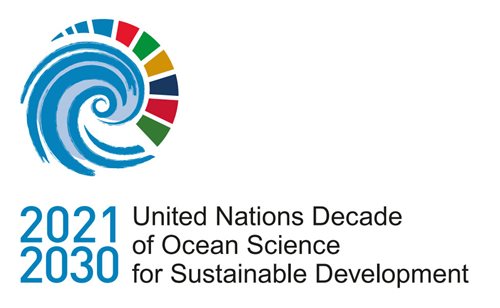Story
Marine biodiversity conservation: NECCTON project endorsed by UN Ocean Decade
6 March 2024

The ocean's biodiversity is the lifeblood for nearly half the world's population, yet it faces threats from climate change and human activities.
NECCTON (New Copernicus Capability for Tropic Ocean Networks) recognises the urgent need for advanced marine monitoring, and is dedicated to developing and disseminating new methods and tools that inform marine biodiversity conservation and food resources management, through fusing innovative ocean ecosystem models and new data.
PML’s NECCTON project lead Dr James (Jim) Clark said:
“Plymouth Marine Laboratory has been involved in NECCTON from the start, and we’re proud to celebrate this prestigious endorsement from the UN Ocean Decade programme, alongside our colleagues from the consortium of 22 other world-leading research-intensive institutes, universities, and small and medium enterprises, who have all made this possible.”
“Marine biodiversity loss is one of the most pressing environmental issues of our generation. The ocean’s biodiversity underpins critical marine services and ultimately helps to support billions of people globally, who depend on the ocean for food and various economic and cultural reasons.”
“The endorsement exemplifies the work being done through NECCTON, an exciting project that can benefit marine biodiversity conservation and food resources management in two key areas.”
“Firstly, NECCTON aims to better meet information needs for policymakers to assess biodiversity and food resources, to better inform decisions in managing our ocean responsibly.”
“Secondly, NECCTON aims to improve the quality and range of biogeochemical products and services available through the Copernicus Marine Service (CMEMS). CMEMS provides free, regular and systematic authoritative information on the state of the ocean, globally and regionally. It is designed to increase global ocean literacy and boost the blue economy across all maritime sectors by providing state-of-the-art ocean data and information free of charge.”
“NECCTON will allow the delivery of quality-assessed products required by the Copernicus Marine service user community, and this essential data can contribute to: combating pollution, marine protection, maritime safety and routing, sustainable use of ocean resources, developing renewable marine energy resources, supporting blue growth, climate monitoring, forecasting, and more.”
The consortium is coordinated by Mercator Ocean International (MOi), which is the entrusted entity of the Copernicus Marine Service, and led by Dr Stefano Ciavatta from MOi. PML is helping to manage the project, while Dr Clark leads WP5 “Improving the CMEMS capability in lower-trophic level modelling.
"Our project aims to bridge the gap in current marine monitoring methods," says Dr. Stefano Ciavatta, NECCTON Project Lead. "By developing new tools, we can provide operational centres with data that is crucial for marine biodiversity conservation and sustainable marine food resource management, both globally and in regional seas."
One of NECCTON's key strategies is co-designing thirteen case studies with stakeholders such as the Food and Agriculture Organization (FAO), the International Union for Conservation of Nature (IUCN), the International Council for the Exploration of the Sea (ICES), and marine protected area managers. This collaboration ensures that NECCTON's products meet the specific needs and requirements of users, directly supporting the conservation of marine life.
"The UN Ocean Decade endorsement is a testament to the importance of our work," adds Dr. Ciavatta. "We are honoured to be recognized for our commitment to advancing marine biodiversity conservation and look forward to making a significant impact in the years to come."
With the support of the UN Ocean Decade Programme, NECCTON is poised to make substantial strides in marine conservation. The project will continue to collaborate with stakeholders, develop innovative tools, and contribute to a healthier and more sustainable ocean environment for generations to come.
NECCTON is coordinated by Mercator Ocean International, read full press release about UN Ocean Decade endorsement here.
Related information
NECCTON has received funding from Horizon Europe RIA under Grant Number 101081273. UK participants in Horizon Europe Project NECCTON are supported by UKRI grant numbers 10042851 (Plymouth Marine Laboratory) and 10049264 (UK Met Office).
About UN Ocean Decade Programme:
The UN Ocean Decade Programme aims to mobilize global efforts to reverse the cycle of decline in ocean health and create improved conditions for sustainable development of the ocean. It provides a framework for collaborative research, capacity development, and innovation to support the conservation and sustainable use of the ocean and its resources. For more information, visit [https://oceandecade.org/]

